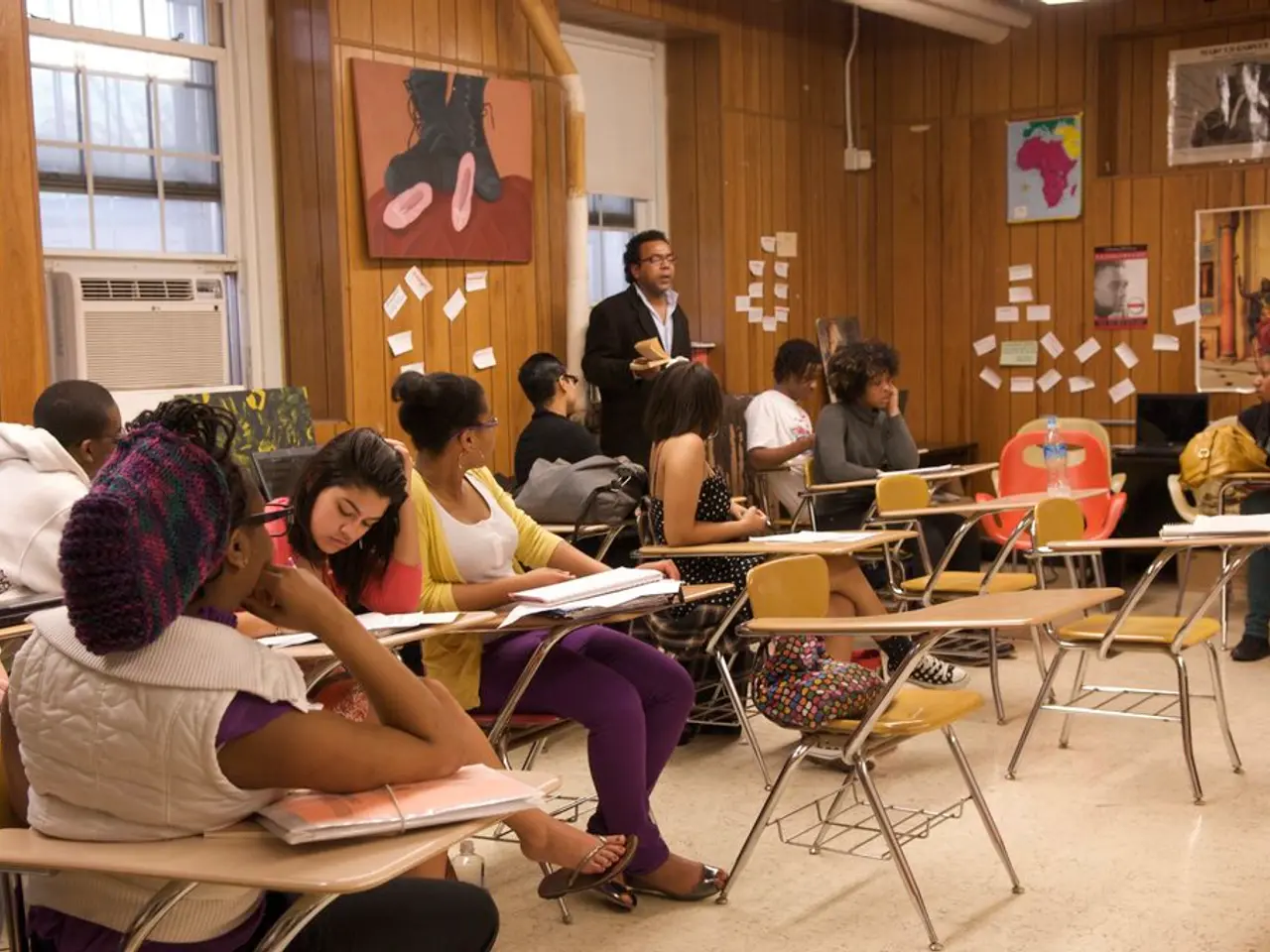Redesigning Educational Environments for Student Empowerment
In a thought-provoking address at the Tech & Learning Northeast Regional Leadership Summit, Dr. Adam Phyall, Director of Professional Learning and Leadership at All4Ed, underscored the importance of educators adapting their approach to learning spaces to empower students with technology and prepare them for their future careers.
Dr. Phyall highlighted the potential pitfalls of not offering opportunities for students to explore emerging technologies, particularly in terms of technology access and equity. He noted that students of color often fall behind in this area, and this perpetuates inequities in schools.
To bridge this gap, Dr. Phyall advocated for immersive, certification-based, and resource-supported learning experiences. These methods would enable students to gain foundational knowledge in critical tech fields such as data analytics and AI through hands-on, lab-style boot camps. Upon completion, students would receive certifications to validate their skills and offer them recognition in their careers or within companies.
Moreover, Dr. Phyall emphasized the importance of providing ongoing access to resources for self-paced learning beyond the classroom. This approach would encourage continuous, autonomous skill development and better equip students to navigate the evolving technology landscape.
The summit also underscored the value of leadership, innovation, and career growth intertwined with technical education. This holistic preparation is crucial for tomorrow's workforce, as students will need to be adaptable and innovative to thrive in an ever-changing technological landscape.
Dr. Phyall used examples from his personal life to illustrate the impact of technology on society. He compared the sea change that AI and other innovations are driving today to the impact of the internet in the past. He also shared his recent battle with gallbladder cancer, which inspired his daughter to pursue a career in creating a cancer-screening device, demonstrating the potential for students to apply new technologies to solve real-world problems.
In conclusion, Dr. Phyall underscored the need for educators to create spaces that empower students and give them the tools to thrive and solve tomorrow's problems. Banning AI, he argued, is not beneficial, and students may have access to the internet at home despite teachers' assumptions to the contrary. The key is to embrace AI and teach its ethics and best practices, as it will continue to be a significant part of students' lives.
[1] Tech & Learning Northeast Regional Leadership Summit, Rutgers University, [Date] [2] [Article Title], [Publication], [Date]
- To effectively prepare students for their future careers, educators at the Tech & Learning Northeast Regional Leadership Summit were encouraged to create immersive, certification-based, and resource-supported learning experiences that offer students hands-on opportunities to explore emerging technologies, such as data analytics and AI.
- In his address at the summit, Dr. Adam Phyall emphasized that ongoing access to resources for self-paced learning beyond the classroom is essential for continuous skill development and better preparation of students to navigate the evolving technological landscape.
- To combat inequities in technology access and education, Dr. Phyall advocated for bridging the gap by providing interactive and engaging learning opportunities that are readily available to students of all backgrounds, thus promoting equity and self-development in a rapidly changing technological world.




